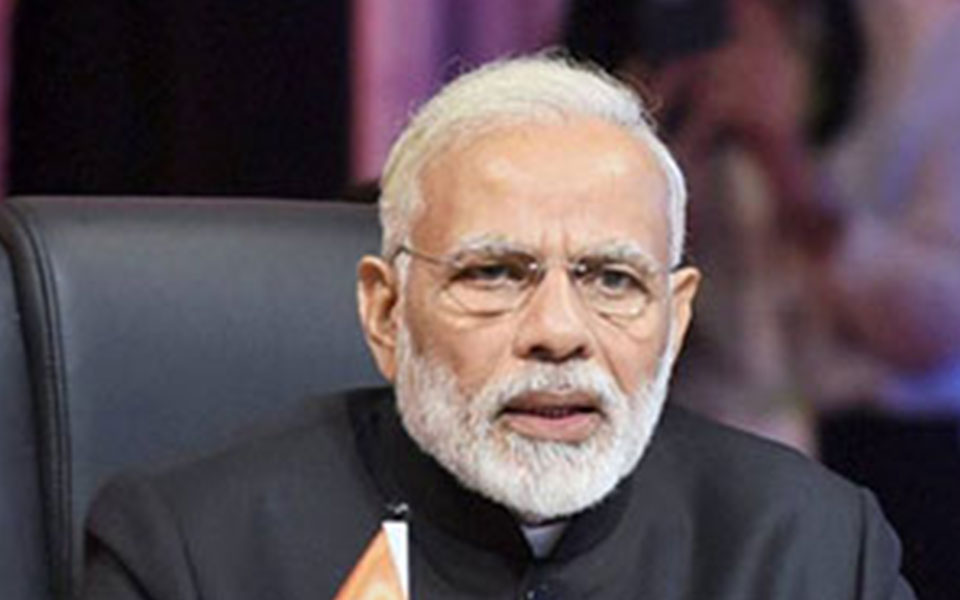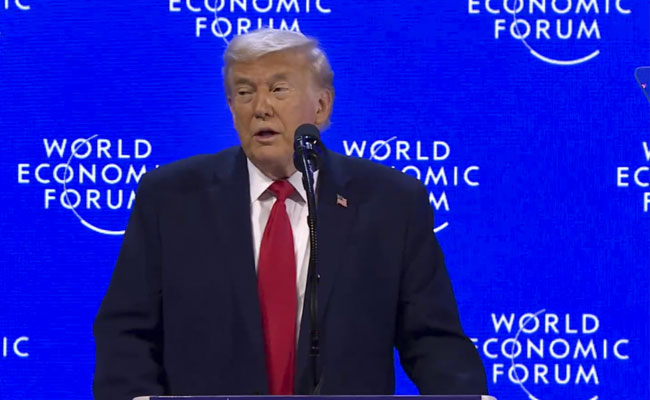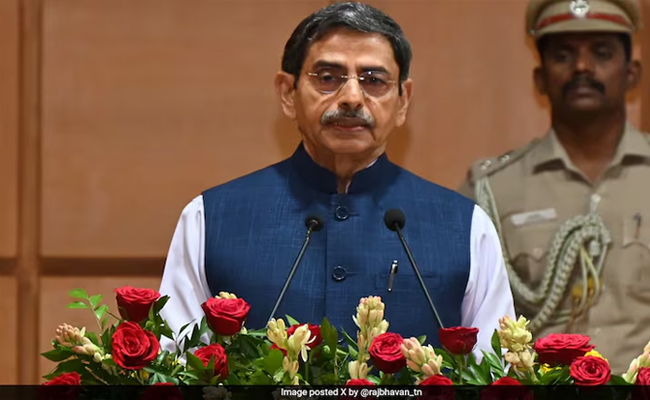New Delhi, June 15: Prime Minister Narendra Modi on Friday said his flagship programme "Digital India" helped citizens by eliminating middlemen and promoted 4Es -- Education, Employment, Entrepreneurship and Empowerment.
"We launched Digital India with a very simple focus -- to ensure more people can benefit from the joys of technology, especially in rural areas," he said while interacting via NaMo App with the beneficiaries of government's flagship schemes across the country.
To make this possible, the government worked on a holistic policy consisting of connecting villages through optical fibre, educating citizens digitally, providing service delivery through mobiles and promoting electronics manufacturing.
This was his sixth outreach with the beneficiaries of government schemes through video conferencing.
The event was streamed in social media site Facebook to over 50 lakh beneficiaries, including those from common service centres, NIC centres, National Knowledge Network, BPOs, mobile manufacturing units and MyGov volunteers.
Modi stated that the initiative had brought about a movement for digital payments, thereby eliminating the concept of middlemen.
"Due to technology, railway tickets can be booked online, bills can be paid online... all this brings great convenience. We ensured that the advantages of technology are not restricted to a select few but they are there for all sections of society. We have strengthened the network of Computer Science Corporations (CSCs)," he said.
Various provisions like online payment of bills, including BHIM App, online booking of railway tickets and electronic delivery of scholarships and pensions to bank accounts, had greatly reduced the hassles of common people, Modi added.
Modi said Pradhan Mantri Gramin Digital Saksharta Abhiyan (PMGDISHA) had provided digital skill and training to 1.25 crore people, out of which 70 per cent of candidates were from Scheduled Castes (SC), Scheduled Tribes (ST) and Other Backward Class (OBC) communities.
He also said the scheme had been a major tool in bringing digital transformation in rural areas, and in the North-East.
"Under our North-East BPO Promotion Scheme (NEBPS), we are not just providing employment to youth in cities but also in the Northeast. The India BPO promotion scheme and a separate BPO promotion scheme for the Northeast is creating new opportunities relating to the sector," he added.
He said the Digital India had transformed the BPO sector as it had now spread to small towns and villages, creating employment opportunities.
Modi said that the Electronic Manufacturing Cluster (EMC) scheme was launched to promote electronic manufacturing in India and it would provide employment to close to six lakh people.
India has 120 mobile phone manufacturing factories now compared to just two such units in 2014, he said, adding it had offered direct and indirect employment to more than 4.5 lakh citizens.
Let the Truth be known. If you read VB and like VB, please be a VB Supporter and Help us deliver the Truth to one and all.
Gurugram (PTI): A petrol pump worker died after an SUV rammed into his motorcycle in the Sushant Lok area here, police said on Thursday.
The accused driver fled the scene, leaving the vehicle after the accident. An FIR has been registered at the Sushant Lok police station, they said.
According to police, the accident occurred on Wednesday afternoon when Mukesh was travelling from Sector 44 to Sushant Lok on Vyapar Kendra Road for some work.
Near Vyapar Kendra, a white Thar coming from the wrong side at high speed hit his motorcycle head-on, leaving him critically injured, they said.
The driver fled the scene, leaving the vehicle behind, police added.
Eyewitnesses claimed the vehicle had no number plates either at the front or rear.
Locals took Mukesh to a private hospital, where he died during treatment, police said. He was a resident of Rohta Patti in Palwal and worked at a petrol pump in Sector 44.
An FIR was registered against the unidentified driver, based on a complaint lodged by his brother Ashok. The body was handed over to the family after a post-mortem on Thursday, police said.
“The Thar vehicle has been seized from the spot. CCTV footage from the area is being examined, and the driver will be arrested soon,” a Gurugram police spokesperson said.





